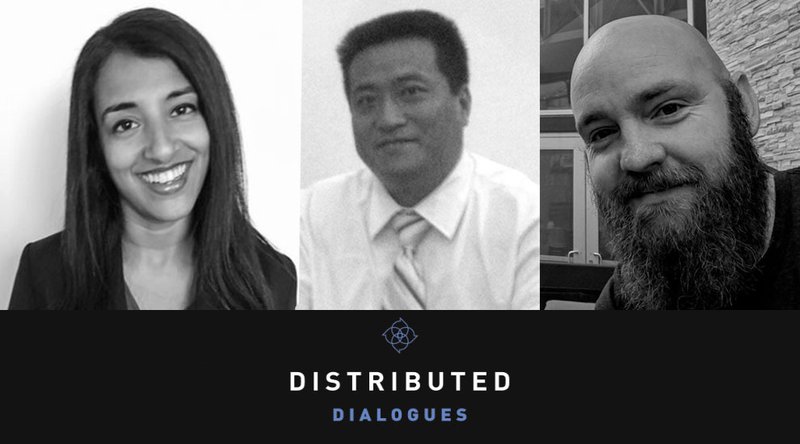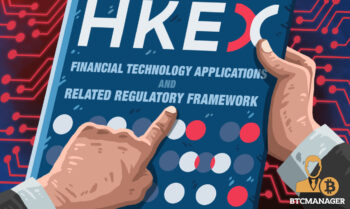2019-1-18 06:08 |
Distributed Technologies Research (DTR) is a non-profit research foundation based in Switzerland. Find out everything you need to know about the organization today in our overview.
What Is Distributed Technologies Research?Distributed Technologies Research, found online at DTR.org, is a non-profit organization that aims to promote research and decentralize the future.
“We fund advances in technology, enabling scalable distributed trust systems,”
explains the official website.
The organization’s first project is called Unit-e. It’s a blockchain-based payment network that aims to succeed where other cryptocurrencies have failed. DTR wants to create the “killer application” for blockchain technology by making a payment network free from the constraints of the modern financial system. The Unit-e project was first announced in a research paper in November 2018. Development is actively ongoing today.
Overall, the goal of the Switzerland-based organization is to promote research and development within the field of distributed trust.
“Distributed technologies will be a key feature of this century as we near the point where every person in the world is connected together.”
Today, distributed trust systems are changing the way we interact with each other. Instead of being forced to trust a centralized entity – like a bank – we can rely on trustless systems like bitcoin to process secure payments. Whether you call these systems “trustless” or “distributed trust”, the systems are built on a new type of trust. We no longer have to trust authority figures in the space. We can distribute trust across a network and rely on a community to vet and verify an entity.
“New technology is now allowing us to cooperate via open, decentralized networks, avoiding the need for centralized authorities,”
explains the official website.
“Our goal is to enable and support this revolution.”
What Does Distributed Technologies Research Do?Distributed Technologies Research engages in a number of areas of the field in an effort to promote distributed trust research. Some of the areas of the field in which DTR is active include:
Trust And Society“The ability to cooperate flexibly in large numbers has always been integral to the development of society,”
explains the official website.
“Cooperation is mediated by trusted relationships, and the role of trust has transitioned through multiple phases.”
With that in mind, Distributed Technologies Research aims to create technologies that encourage distributed trust systems to be engrained within society.
Phases Of TrustDistributed Technologies Research believes society has passed through multiple phases of trust over the years. Initially, we had tribal trust within small groups of individuals. Over time, we have grown to trust institutions. The phases of trust include:
Phase 1 – Tribal Trust:“Long-term relationships in small groups enabled cooperation in tribes numbering hundreds of individuals, but this couldn’t scale.”
Phase 2 – Institutional Trust:“Trust flowing from individuals into institutions enabled millions to cooperate at scale.”
Some of the trusted institutions mentioned by DTR include churches, nation-states, and corporations. Over time, however, these institutions have been organized into hierarchies, and the minority group at the top of these institutions acts in favor of particular interests, threatening trust throughout the organization.
Phase 3 – Distributed Trust:“We are nearing the point where every person in the world is connected together,” explains the official DTR website. Thanks to new technology, we can cooperate using open, decentralized networks while avoiding the need for centralized authorities. Unfortunately, these decentralized networks have faced technical challenges. They have not been able to adequately scale, which is why DTR feels “ground-breaking research is needed.”
Distributed Technologies Research Projects And TechnologiesBased on the areas of focus mentioned above, Distributed Technologies Research wants to focus on boosting research activity in certain aspects of the space.
“We fund innovative research and development to solve the technical challenges and enable the distributed trust revolution,”
explains the official website.
So far, DTR’s flagship project is called Unit-e, described as
“a highly-scalable and fully-decentralized monetary and payment network.”
DTR believes we need a better form of money. Bitcoin was founded on the idea that we can securely transfer money worldwide without the need for centralized intermediaries. Unit-e aims to create a future where financial intermediaries do not charge high fees for sending payments and where the global reserve currency and denomination of cross-border trade and payment are not controlled by one sovereign power.
In today’s money system, economic crises and currency devaluations remain a problem for hundreds of millions of people. 2 billion people worldwide are excluded from modern banking systems.
DTR’s Unit-e project aims to solve all of these problems, creating a payment network with distributed trust where everyone can participate.
How Does The DTR Ecosystem Work?Unit-e is the first project developed as part of the DTR ecosystem. The ecosystem will consist of all of the following components:
Innovative Research:
“We provide funding to initiatives at the forefront of decentralized technology,”
explains the official website. The goal of DTR is to encourage more research into the field of decentralized trust.
Development and Governance: DTR contributes to the long-term success of various projects by providing development and governance services.
Open Source Philosophy: Like many other organizations in the space, DTR focuses on an open source development philosophy, where work is shared among the community to push the community ahead collectively.
How Does Unit-e Work?Unit-e is the flagship project currently being developed by Distributed Technologies Research. Unit-e aims to offer a payment network with decentralized, distributed trust systems. The goal is to create a future where money can be transferred without the need for centralized intermediaries.
Distributed Technologies Research sees payment systems as the “killer application” for blockchain. A good blockchain-based payment network can catapult the industry to become a household name.
Of course, there are thousands of cryptocurrencies – including bitcoin – that are being actively developed with similar goals in mind. Many other crypto projects want to create an effective payment network. So what makes Distributed Technologies Research different?
“Today there are thousands of cryptocurrencies, but they all have limited use,”
explains the official DTR website.
“Technology improvements are needed to unlock adoption by merchants and users, creating an economic network effect.”
Unit-e aims to differentiate itself from the crowd of competitors based on its superior research and funding,
“delivering the scalable performance needed to enter mainstream use.”
In other words, the DTR team does not believe that other cryptocurrency projects have the capabilities to truly allow blockchain technology to leap forward and become a superior payment network. DTR aims to accomplish that goal.
Unit-e stills appear to be in the early stages of development. Distributed Technologies Research published a research paper in November 2018 titled, “Decentralized Payment Systems: Principles and Design”. That paper explained how blockchains could disrupt modern payment systems. It also outlined how Unit-e could work.
It’s unclear how far along Unit-e’s development is, or when the project may be ready for launch. However, Unit-e is the current flagship product being actively developed by Distributed Technologies Research.
Apply For Funding Through Distributed Technologies ResearchDistributed Technologies Research allows projects to apply for funding through the official DTR.org website. If your project is in the field of distributed trust, then you may be eligible to receive funding from Distributed Technologies Research. In addition to funding, DTR can provide governance and development services.
“Our motivation is decentralization and distributed trust. Are you contributing to Unit-e, or working on a new exciting project? Applicants must meet our governance and transparency standards.”
ConclusionDistributed Technologies Research Stiftung is based in Zug, Switzerland, also known as “Crypto Valley”. The goal of the non-profit organization is to promote research and decentralize the future. Announced in November 2018, the organization’s flagship project is called Unit-e, which aims to create a “killer payments application” based on blockchain technology.
To learn more about the Switzerland-based organization and its goals for decentralized governance research moving forward, visit online today at DTR.org.
origin »Bitcoin price in Telegram @btc_price_every_hour
Distributed Credit Chain (DCC) íà Currencies.ru
|
|



























